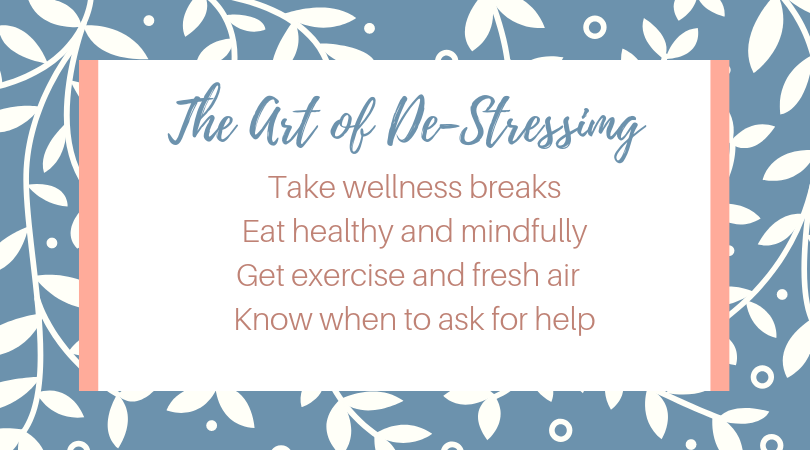For every cover letter I’ve written for a legal job, I’ve written that I would be a “zealous advocate.” Indeed, most legal job postings provide in the descriptive section that the job requires “zealous advocacy.” This is because lawyers have a strict ethical responsibility to “advocate zealously” on behalf of their client. See American Bar Association Model Rule of Professional Conduct 1.1.
This phrase is everywhere. As I’ve been thinking about stress, both its causes and cures, it occurred to me that “zealous advocacy” in practice really means “arguing a lot.” As lawyers, in order to advocate zealously on behalf of our clients, we do a lot of arguing, especially if we’re litigators. We argue with: opposing counsel and other third-party litigators, who are bound by the same ethics code on behalf of their clients; with the Court in a fascinating exercise known, fittingly, as “oral argument”; sometimes with clients who have different ideas about case strategy; and even sometimes with colleagues who bring a wealth of knowledge and experience to the legal team and consequently can be very impassioned about particular issues that arise during the life of a case. (And, come to think of why I even became a lawyer in the first place, I remember being told as a child that I should go to law school because I was “good at arguing.”)
Lawyers strive to make arguing as civil and respectable as possible, but that doesn’t make it any less unpleasant. To sum it up succinctly, consider this analogy from Tina Willis, a personal injury lawyer: “Other than professional boxing, I can’t think of any other profession where the job requires constant fighting.”
Thinking about the legal profession through this lens sheds light on why lawyers are prone to stress, anxiety, depression and other issues. The statistics are staggering. Lawyers are 3.6 times as likely to be depressed as people in other jobs. According to an often-cited Johns Hopkins University study of more than 100 occupations, researchers found that lawyers lead the nation with the highest incidence of depression. In 1996, lawyers overtook dentists as the profession with the highest rate of suicide. And finally, a landmark 2016 American Bar Association and Hazelden Betty Ford Foundation study found that 28 percent of licensed, employed lawyers suffer from depression. The study also showed that 19 percent have symptoms of anxiety and 21 percent are problem drinkers.
It is commonly believed that the explanation for these statistics is because of self-selection: the type of people who usually want to be lawyers are Type-A perfectionists who put way too much pressure on themselves and are good at arguing. This may be the case, but a bigger contributor seems to be the particular circumstances of the legal profession. As other lawyers have described it:
- “Lawyers must constantly try to predict the next threat or catastrophe. They constantly ask the question, “What’s the worst thing that could happen?” As a result, lawyers are in a permanent ‘fight or flight’ mode and constantly on guard.” – James A. Fassold, probate law and trusts litigator
- “The legal profession combines long hours, high stress, isolation, a trained need to never show vulnerability, and work that by its very definition is antagonistic and conflict-laden.” – Kevin Chandler, director of the nation’s largest addiction treatment provider
- “The law is practiced in an adversarial setting where mistakes are not only pointed out but are relied upon for competitive advantage.” – Mark K. Billion, a consumer bankruptcy lawyer
In short, as retired family law attorney James Gray Robinson puts it: “Lawyers have to have an elephant’s hide, the courage of a martyr, and the patience of a saint.” I submit this is the most apt definition of “zealous advocate.”
So, armed with the knowledge that the culture of arguing is built into—and might even be the very essence of—the legal profession, lawyers with and without mental health issues should use this month to find ways to prioritize wellness and relieve stress.
For starters, we’ve all been taught to exercise regularly for physical well-being. Regular exercise is as necessary, if not more, for mental well-being too. Besides exercise, some other tips to de-stress:
- Take time to care for yourself. (The millennials are calling this “self-care.”)
- Take your mental health seriously.
- Make time for non-legal pursuits as a healthy outlet for stress.
- Know when to ask for help.
And, most importantly, in my view: accept that the practice of law is inherently stressful. (In other words—it’s not us, it’s them!)

